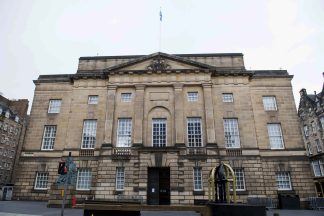Glasgow City Council has confirmed it is facing a budget shortfall of more than £107m over the next three years.
Political groups will present proposals to plug the gap at a meeting on Thursday, with service cuts and increased charges among the options available.
In November, the council’s finance director, Martin Booth, reported the financial situation is “extremely challenging”, as, after years of budget cuts, inflation has “significantly exacerbated” the position.
His update to councillors ahead of the meeting next week reveals the gap has reduced from £120m to £107.7m, which covers the period from 2024/25 to 2026/27.
Glasgow will receive £15.4m from the Scottish Government for a council tax freeze, which the SNP intends to include in its budget proposals. That figure has been included in the projected shortfall.
Mr Booth’s report states the council has to “notify the Scottish Government by February 16 of its intention to freeze council tax”. “It is assumed that the council will accept this funding and apply a council tax freeze and so this funding is incorporated into the spending gap of £107.7m.”
The report adds the revised spending gap also “incorporates £9.4m of savings options already approved or approved under delegated authority”.
Glasgow City Council is set to receive £1,590.981m from the Scottish Government, with the final allocation is expected to be confirmed in the Scottish Parliament next month.
A budget support fund was set up in 2022/23 to help deliver the budget “over the medium term”. Its balance was £105m by the end of March 2023, but it is expected to reduce to £60m by March 31, 2024.
That fund will be used to meet a projected overspend in the 2023/24 budget as well as the cost of early retirements and voluntary redundancies, which have been incurred due to savings this year.
A cross-party budget group has met to consider savings options, and targets for council services were agreed.
In November, the report stated principles to “underpin” options would include redesigning or prioritising services by “identifying areas where services need to be reduced or ceased based on risk, affordability and demand”.
It added property and land which is “commercially attractive” could be identified for sale while options to minimise running and repair costs would be considered. Exploring opportunities to increase existing charges and introduce new ones was also planned.
Follow STV News on WhatsApp
Scan the QR code on your mobile device for all the latest news from around the country


 STV News
STV News

























